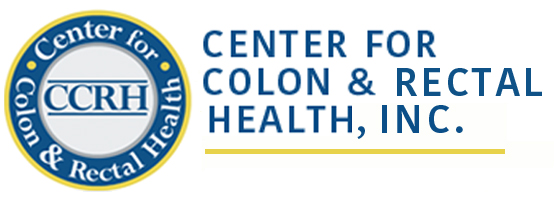Colorectal cancer grows in the large intestines (colon and rectum) of the digestive tract. The rectum is the section of the digestive tract above the anus, where fecal matter or stool is held before it passes out of the body. Colorectal cancer is one of the most common types of cancer and the second leading cause of cancer death in our country. And unlike most other cancers, colorectal cancer is largely preventable.
Colorectal cancer grows slowly and typically does not cause symptoms until it grows quite large. Colorectal cancer typically starts as a polyp of the colon or rectal mucosa (the lining of the colon and rectum). Hence, the only way to prevent colon and rectal cancer is to find it as a polyp and remove it before it becomes cancer.
According to studies by the American Cancer Society (ACS), people with a family history of colorectal cancer often have a higher risk of developing the cancer themselves. Knowing your family history is important. People with a family history of polyps of the colon and rectum as well as people with ulcerative colitis or Crohn’s disease have a higher risk of developing colorectal cancer. Colon cancer is more common among women and rectal cancer is more common among men. A small proportion of cancers arise from a genetic syndrome such as HNPCC (formally Lynch Syndrome), or Familial Adenomatous Polyposis (FAP).
When patients feel unexplained symptoms or discomfort in the abdomen or rectum, be assured the Center for Colon & Rectal Health has the answers to explain your symptoms. When symptoms are present, they may range from fatigue and weakness resulting from occult bleeding (anemia), which is not visible to the naked eye, to crampy abdominal pain, or severe abdominal pain and constipation. Most colon cancers bleed slowly and often the blood cannot be seen (occult blood) in the stool or fecal matter, or even in the toilet bowl. However, the most common first symptom of rectal cancer is usually rectal bleeding (bright red blood) or narrowing of stool. A painful bowel movement or a feeling that the rectum has not been completely emptied can be symptoms as well. In advanced cases of colon cancer, nausea and vomiting, abdominal distension, or symptoms of large bowel obstruction may occur. This may include narrowing of the stool or ribbon like stools. If colorectal cancer grows too large, it can block the bowel, creating a large bowel obstruction, which often needs emergent treatment.
The physicians at CCRH understand it can be awkward and even embarrassing to discuss intimate family history or uncomfortable symptoms with a doctor. We understand that these issues interrupt your activities of daily living, or impact your quality of life. As highly specialized physicians and surgeons, we spend as much time with each of our patients as they feel they need to understand their symptoms, issues, and diagnoses. We are available to answer any questions and to recommend preventive measures, such as colonoscopy or dietary changes, to improve your health. Our caring medical staff is available to schedule an appointment at either of our office locations at your convenience.
Please read about Colonoscopy and Pre-Cancerous Screening in the Treatments & Procedures link of this website for more information.
More Information
Our goal is to provide you with a safe and comfortable environment. Every patient is different. We strive to offer you the most accurate and effective treatment options.
Please contact Bucks County’s premier colorectal group to schedule an appointment and to learn more.
St. Mary Medical Center
St. Clare Medical Building, Suite 130
1203 Langhorne-Newtown Road
Langhorne, PA 19047
215-741-4910


